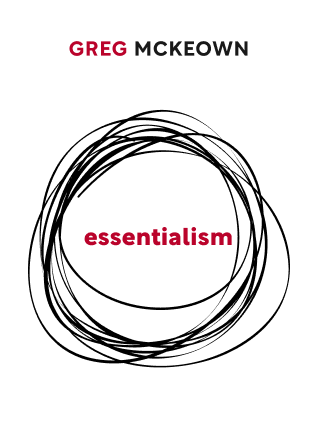

This article is an excerpt from the Shortform book guide to "Essentialism" by Greg McKeown. Shortform has the world's best summaries and analyses of books you should be reading.
Like this article? Sign up for a free trial here .
Do you often feel busy but not productive? Overworked yet underutilized? Do you want to declutter your life and get rid of commitments that aren’t serving you anymore?
If you answered “yes” to any of these, the way out is to step into the shoes of an editor. Thinking like an editor can help you declutter your life by eliminating the nonessential, which in essence is what an editor does.
Here is how thinking like an editor can help you declutter your life and make space for what’s really important.
The Editor’s Approach for How to Declutter Your Life
A good editor, whether in film or in writing, eliminates everything except what needs to be there. Editing is a true essentialist craft. Here are some ways editing can help you declutter your life:
- Editing involves trade-offs: Instead of trying to fit in every detail, character, or plotline, an editor asks how each will make the book or film better by contributing to the central theme. It’s difficult for a writer to eliminate creative work that took great effort to produce. But the discipline to do so is crucial to the craft. Stephen King stressed the necessity of ruthlessly eliminating your favorite passages, pages, or chapters: “Kill your darlings, even when it breaks your egocentric little scribbler’s heart, kill your darlings.” In work and life, removing the nonessential, no matter how appealing it might be, allows you to focus on your central theme.
- Practicing editing helps you execute effortlessly as an essentialist, or achieve your optimum contribution, by removing anything distracting or unimportant. One book editor described editing as an attempt to make life effortless for the reader, that is to make the book’s most important message as clear as possible. Similarly, editing the nonessentials from your life makes all your choices more effortless.
- Editors enhance or add life to a creative work by intentionally subtracting the extraneous. They fully reveal the characters and plot by choosing the right supporting details. In life, purposeful editing can help you enhance your contribution by allowing you to focus your energy on the most important activities and relationships.
You can apply four basic principles of editing to declutter your life by editing out the nonessentials out of it:
1) Cut nonessential options. Cutting options is part of decision-making. Part of the word decision in Latin (cis) means to cut. When you set out to declutter your life, you will have to make difficult decisions about which options to cut (especially when it comes to attractive ones). But eventually, each cut brings satisfaction because every second you gain can be applied to something better.
2) Condense. In editing, when you condense writing you’re making it do more with less (fewer words). Every remaining word must now do more work, becoming more important. In life, condensing also allows you to do more with less. You can eliminate many pointless activities and replace them with one meaningful activity. At work, maybe you can skip unimportant meetings so you have more time to prepare for the most important meeting. If you condense your belongings to live in a smaller apartment or house, many items such as furniture can serve more than one purpose. Just as the important words in a text contribute more to the text’s meaning when you edit out the fluff, your actions make greater contributions toward your goal when you cut out the nonessentials.
3) Make corrections. With a sense of the overall purpose of a work, an editor corrects grammar, logic, and facts. Similarly, in your life, compare your activities with your central purpose and make any necessary course corrections.
4) Exercise restraint. The best editors know when to make changes but also when to exercise restraint and leave things alone. In life, leaving things alone or taking a wait-and-see approach can be the wisest course. For instance, you don’t need to be the first to respond to every email thread or to comment at a meeting.
Final Thoughts
Don’t wait until things get out of hand completely. Waiting too long to declutter your life by eliminating nonessential commitments can force you to make drastic cuts that aren’t necessarily what you would prefer. Instead, make decluttering and editing nonessentials from your life a matter of routine.

———End of Preview———
Like what you just read? Read the rest of the world's best book summary and analysis of Greg McKeown's "Essentialism" at Shortform .
Here's what you'll find in our full Essentialism summary :
- How to do less but to do it better
- Why you need to be disciplined in your pursuit of less
- How you can learn to say no






